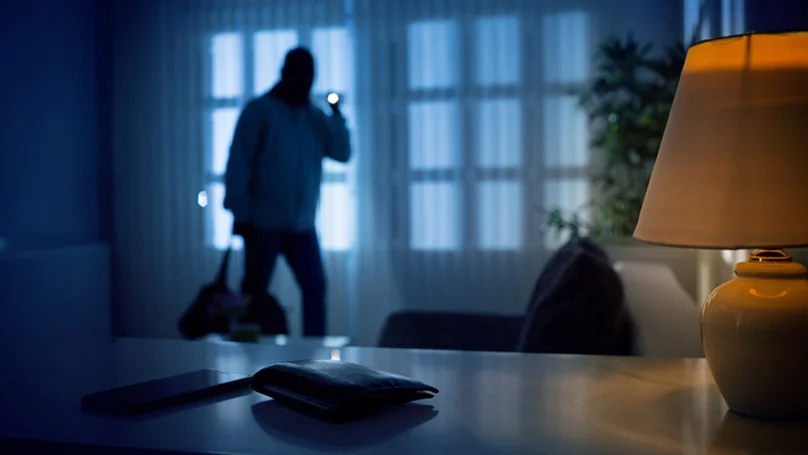Theft Defense Attorney Who Fights for You
Being charged with a theft crime in South Carolina can be a life-changing experience. Theft, robbery, and burglary are serious criminal offenses that can carry hefty fines and even lengthy prison sentences.
However, not all theft crimes are created equal, and understanding the nuances between different types of theft charges is crucial in developing a solid defense strategy.
Everyone deserves their day in court. The Law Office of Mo Abusaft is committed to providing comprehensive criminal defense for theft crimes across South Carolina. Whether it’s your first offense or you’ve been arrested before, our team will work with you each step of the way to strategize and develop an effective defense in your favor.
Types of Theft Crimes
Theft crimes encompass a range of offenses that involve taking someone else’s property without permission. In South Carolina, theft crimes are categorized into three main types: larceny, robbery, and burglary.
Larceny
Larceny generally involves taking someone else’s property without their consent, intending to permanently deprive them of their property. Common examples of larceny include:
- Shoplifting
- Stealing someone’s wallet
- Taking an item from an unlocked car
- Taking a bicycle without consent
Larceny is usually a misdemeanor offense in South Carolina, but the severity of the charge can depend on the value of the stolen property. Notably, larceny offenses don’t involve violent acts or property damage. These can be distinguished by their less intrusive nature.

Robbery
Robbery is a more severe theft involving force or intimidation to take someone else’s property. For example, holding up a convenience store with a gun and demanding money is a robbery. In South Carolina, robbery is a felony offense with significant penalties, including up to 30 years in prison.
Burglary
Burglary is a unique offense involving breaking into a dwelling or business intending to commit a crime. Unlike larceny or robbery, burglary charges don’t require actual property theft to occur. The mere act of breaking in is often enough to charge an individual and garner a conviction. As with robbery charges, burglaries are also a felony offense under South Carolina law and carry significant penalties if convicted.
South Carolina’s Theft Laws
The South Carolina Code of Laws outlines theft laws. Under the law, theft is defined as taking or appropriating property that belongs to someone else with the intent to deprive them of their property.
The value of the stolen property generally determines the severity of a standard theft charge. The higher the value, the more serious the offense.
When property theft is valued at less than $2,000, South Carolina defines this as “petit larceny,” a misdemeanor offense. However, when the total value of the stolen property exceeds $2,000, the suspect could be charged with grand theft, which is a felony offense.
South Carolina also has a specific law that addresses shoplifting. Under the law, shoplifting is defined as either taking products from a store without paying or altering a price tag to pay a lower price. Shoplifting is a misdemeanor offense, but the severity of the charge also depends on the value of the stolen merchandise.
Legal Consequences of Theft Convictions
If you are convicted of a theft crime in South Carolina, the consequences can be severe and include the following:
- Legal fees
- Restitution
- Probation
- Jail time
In addition to the legal consequences, any misdemeanor or felony theft conviction can significantly impact your personal and professional life.
How a South Carolina Theft Attorney Can Help
If you’re facing theft charges in South Carolina, you should know that there are several defense strategies a criminal defense attorney may use.
Challenging the Evidence
Your defense attorney may be able to show that the evidence was obtained illegally, through coercion or other illegal means. If the prosecution’s case relies heavily on circumstantial evidence, your attorney can show that the evidence is weak and does not support the charges against you.
Challenging Witness Testimony
Witness testimony can be a critical piece of evidence in theft cases. However, witness testimony is often unreliable, and witnesses can be mistaken or biased. Your attorney may be able to question the credibility of the witnesses and show that their testimony is unreliable or inconsistent.
Proving Lack of Intent
The state must prove that you intended to steal the property to be convicted of a theft crime in South Carolina. If your attorney can show that you did not intend to steal the property, it may be possible to have the charges against you dismissed or reduced.
Connect with a Theft Attorney in South Carolina
Contact the Law Office of Mo Abusaft today if you face theft charges. We’re deeply committed to helping clients navigate the legal process. Whether you’ve been charged with larceny or burglary, we’re ready to review your case and determine the best path forward.
Practice Areas
